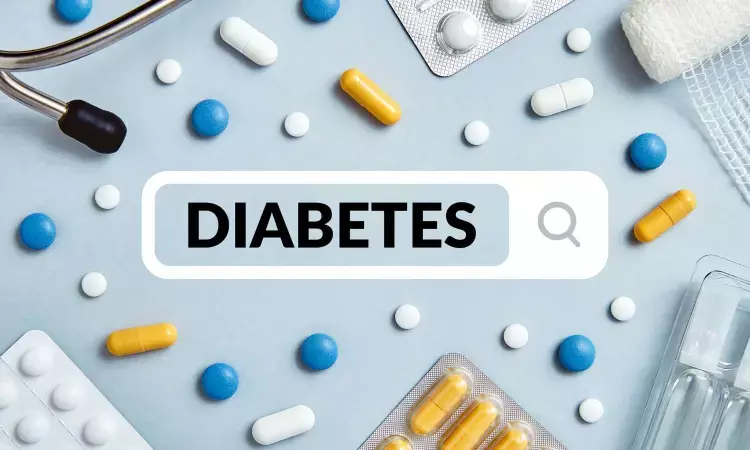- Home
- Medical news & Guidelines
- Anesthesiology
- Cardiology and CTVS
- Critical Care
- Dentistry
- Dermatology
- Diabetes and Endocrinology
- ENT
- Gastroenterology
- Medicine
- Nephrology
- Neurology
- Obstretics-Gynaecology
- Oncology
- Ophthalmology
- Orthopaedics
- Pediatrics-Neonatology
- Psychiatry
- Pulmonology
- Radiology
- Surgery
- Urology
- Laboratory Medicine
- Diet
- Nursing
- Paramedical
- Physiotherapy
- Health news
- Fact Check
- Bone Health Fact Check
- Brain Health Fact Check
- Cancer Related Fact Check
- Child Care Fact Check
- Dental and oral health fact check
- Diabetes and metabolic health fact check
- Diet and Nutrition Fact Check
- Eye and ENT Care Fact Check
- Fitness fact check
- Gut health fact check
- Heart health fact check
- Kidney health fact check
- Medical education fact check
- Men's health fact check
- Respiratory fact check
- Skin and hair care fact check
- Vaccine and Immunization fact check
- Women's health fact check
- AYUSH
- State News
- Andaman and Nicobar Islands
- Andhra Pradesh
- Arunachal Pradesh
- Assam
- Bihar
- Chandigarh
- Chattisgarh
- Dadra and Nagar Haveli
- Daman and Diu
- Delhi
- Goa
- Gujarat
- Haryana
- Himachal Pradesh
- Jammu & Kashmir
- Jharkhand
- Karnataka
- Kerala
- Ladakh
- Lakshadweep
- Madhya Pradesh
- Maharashtra
- Manipur
- Meghalaya
- Mizoram
- Nagaland
- Odisha
- Puducherry
- Punjab
- Rajasthan
- Sikkim
- Tamil Nadu
- Telangana
- Tripura
- Uttar Pradesh
- Uttrakhand
- West Bengal
- Medical Education
- Industry
Preconception diabetes and prediabetes tied to increased risk of preterm birth

USA: A recent study published in the Journal of Women's Health has shown a strong association between preconception diabetes and preterm birth; prediabetes is also linked with higher risk.
The study of a cohort of US women who gave birth between 2008 and 2018 examined the associations between preconception diabetes, prediabetes, and haemoglobin A1c (HbA1c) levels on the risk of preterm birth. The study also evaluated whether these associations were modified by access to or utilization of healthcare services.
Preconception diabetes is strongly associated with adverse birth outcomes. In the current study, Erin Delker, PhD, from the University of California, San Diego and San Diego State University, and coauthors found that preconception diabetes and prediabetes were associated with increased risk of preterm birth. The investigators reported that the associations between preconception elevated HbA1c and preterm birth were greater among women without stable healthcare coverage.
Key findings include:
- The prevalence of preterm birth was 13%.
- Before pregnancy, 6.9% of women had diabetes, 23.7% had prediabetes, and 69.4% were normoglycemic.
- Compared to the normoglycemic group, women with diabetes had 2.1 times the risk of preterm birth, while women with prediabetes had 1.3 times the risk of preterm birth.
- There was a nonlinear relationship between HbA1c and preterm birth such that the risk of preterm birth emerged after HbA1c = 5.7%, a standard cutoff for prediabetes.
- The excess risks of preterm birth associated with elevated HbA1c were four to five times larger among women who reported unstable health care coverage and among women who used the emergency room as usual source of care.
“Our findings, in aggregate with the existing literature, suggest that screening for hyperglycemia before pregnancy is important to identifying women who may experience greater risks of adverse birth outcomes,” state the investigators.
In an accompanying Editorial , Amber Healy, DO, from Ohio University Heritage College of Osteopathic Medicine, states that “Recommendations for the diagnosis and treatment of prediabetes in pregnancy are lacking.” Dr. Healy concludes that “Better screening for prediabetes and diabetes preconception and increased access to contraception will prove beneficial in reducing preterm delivery. Engaging both primary care providers and obstetrics/gynecology specialists in these strategies are key to these strategies succeeding.”
Reference:
Erin Delker, Gladys A. Ramos, Gretchen Bandoli, D. Yvette LaCoursiere, Karen Ferran, Linda C. Gallo, Eyal Oren, Sheila Gahagan, and Matthew Allison Published Online:16 Feb 2023
https://doi.org/10.1089/jwh.2022.0256
Dr Kamal Kant Kohli-MBBS, DTCD- a chest specialist with more than 30 years of practice and a flair for writing clinical articles, Dr Kamal Kant Kohli joined Medical Dialogues as a Chief Editor of Medical News. Besides writing articles, as an editor, he proofreads and verifies all the medical content published on Medical Dialogues including those coming from journals, studies,medical conferences,guidelines etc. Email: drkohli@medicaldialogues.in. Contact no. 011-43720751


